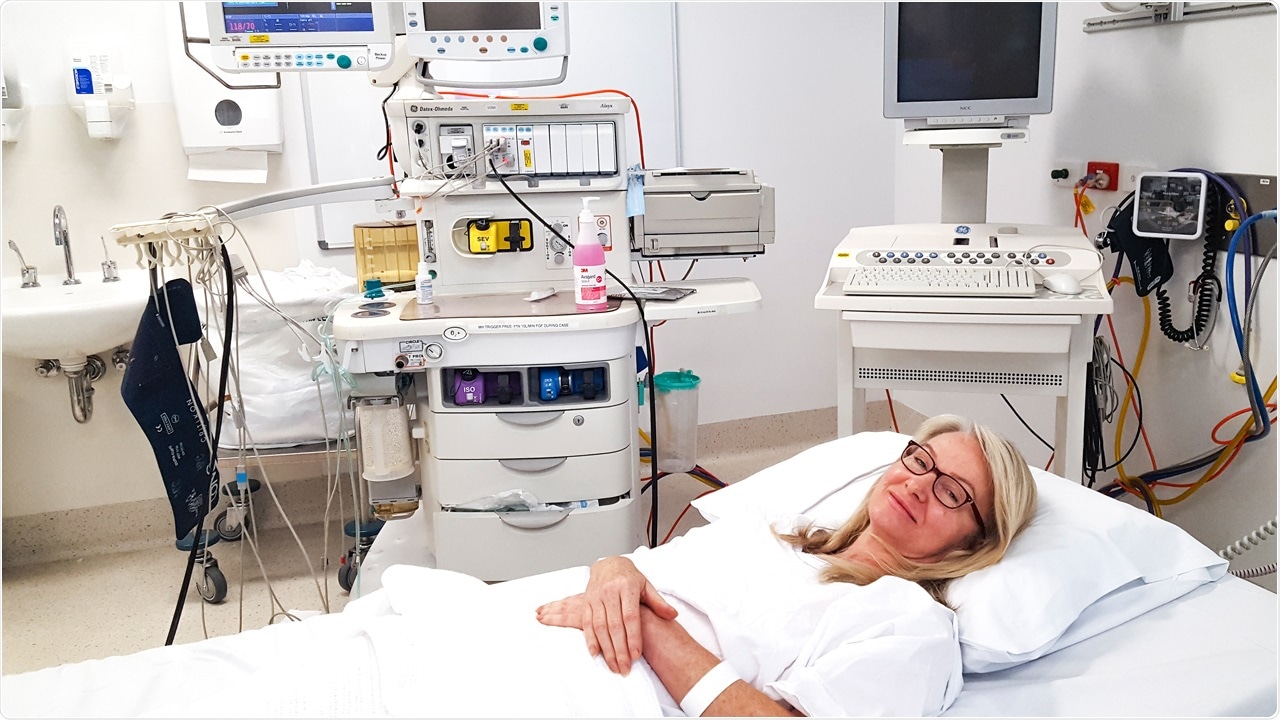
Margaret Kilby. Image Credit: Victor Chang Cardiac Research Institute
The findings pave the way for a whole new area of focused treatments for people at risk of developing cardiovascular disease, which is Australia’s leading cause of death. According to the most recent ABS figures, this disease kills 46 Australians every day.
Professor Jason Kovacic, Executive Director of the Victor Chang Cardiac Research Institute, was the paper’s lead author. He says the study achieved three major advancements, all of which are critical in the battle against cardiovascular disease.
Firstly, we have now more accurately defined the precise genes that are likely to cause coronary heart disease. Second, we’ve identified exactly where in the body the main effect of those genes is—it might be in the heart arteries themselves that directly cause blockages, or perhaps the effect is in the liver to increase cholesterol levels, or in the blood to change inflammation.”
Jason Kovacic, Study Lead Author, Professor and Executive Director, Victor Chang Cardiac Research Institute
“The third major achievement was to rank those genes—162 in total—in order of priority for causing coronary heart disease. Some of the top genes identified on this list have never really been studied in the context of heart attacks before. To find these new important genes is really exciting but also a real challenge—as no one yet knows exactly how many of them cause coronary heart disease,” added Professor Kovacic.
The research included 600 patients with coronary heart disease and 150 patients who did not have coronary heart disease. All had open chest surgery for coronary heart artery bypass surgery or other medically necessary purposes. Mount Sinai’s supercomputer, termed “Minerva,” was used to run the numbers, analyze data, and consolidate information from multiple genes.
Professor Kovacic hopes that the findings will energize research on the subject and pave the way for a whole new area of cognitive work involving cardiac arrests.
Professor Kovacic says, “This knowledge will allow us to go after these really critical genes that cause heart attacks, as we now know just how highly-deserving they are of immediate in-depth study to understand exactly how they cause coronary heart disease and if they might be promising drug targets for patients.”
Another important aspect of this study was that one of our previously suspected top genes – PHACTR1—was validated as being among the top two genes for causing coronary heart disease. We are very actively studying PHACTR1 in my lab as we know it causes not only coronary heart disease but also a whole range of other vascular diseases including migraine, fibro muscular dysplasia, and spontaneous coronary artery dissection.”
Jason Kovacic, Study Lead Author, Professor and Executive Director, Victor Chang Cardiac Research Institute
“However, even though it is potentially the single most important gene for causing vascular disease, scientists around the world have little idea of how PHACTR1 works—and we are determined to fix that,” says Professor Kovacic.
Another advantage for patients may be enhanced genetic testing.
“The current genetic tests that we have to screen for people at risk of coronary heart disease look at hundreds, if not thousands of genes. At present they aren’t particularly accurate, and mainly for this reason they are not being used routinely in a clinical setting,” states Professor Kovacic.
This refined and prioritized gene list we published in this study opens up many new possibilities in terms of more accurate genetic testing, as well as better understanding what causes heart attack, and developing targeted therapies for many of the new gene targets we have found.”
Jason Kovacic, Study Lead Author, Professor and Executive Director, Victor Chang Cardiac Research Institute
“As a cardiologist myself, that’s incredibly exciting and could eventually make a huge impact on my patients lives,” added Professor Kovacic.
Margaret Kilby, who has had four heart attacks, expressed her hope that the new study will save everyone else from unnecessary heartache.
Having a genetic condition that raises her cholesterol, Mrs. Kilby also states, “Many people don’t want to know whether they have this gene—most of my families for instance, haven’t been tested. There is a lot of uncertainly in knowing but there is also a lot of power in having the information and being able to improve your own health as well as look out for symptoms.”
“If this new research leads to improved accuracy of genetic tests, that will also encourage more people to find out whether they are at risk, which is just fantastic,” she says.
“We are especially grateful to support for this ongoing research from NSW Health and the Bourne Foundation,” concludes Professor Kovacic.
Source:
Journal reference:
Hao, K., et al. (2021) Integrative Prioritization of Causal Genes for Coronary Artery Disease. Circulation: Genomic and Precision Medicine. doi.org/10.1161/CIRCGEN.121.003365.